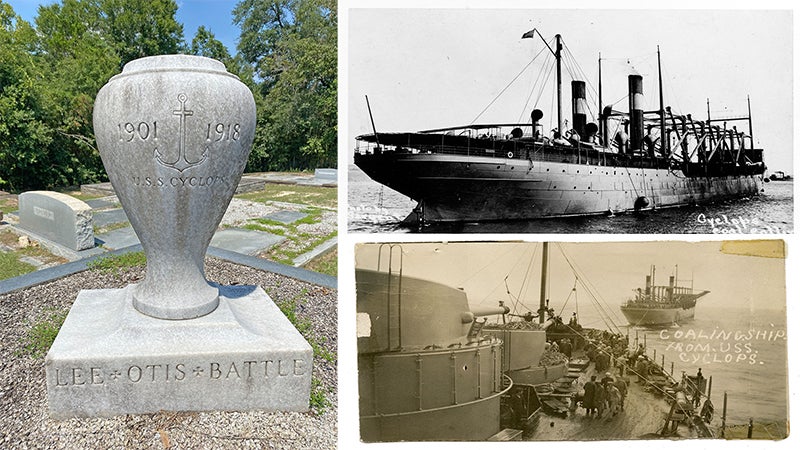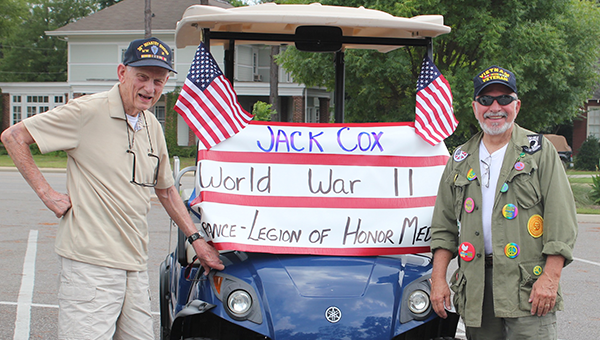Irish woman was truly blessed
Published 12:00 am Friday, January 20, 2012
Doris May McKibbin, 81, made her first trip to Elba, and likely to Alabama, last week. It is her final resting place.
Divorced young, she had outlived all of her family. But the love and friendship she found in her gathering years couldn’t have been sweeter if she’d had blood relatives.
A native of Hollywood, Ireland, Doris entered service as a secretary during World War II, and was a special assistant to Britain’s Lord Mountbatten in Burma. As Supreme Allied Commander of the Southeast Asia Theatre, Mountbatten’s command had overseen the recapture of Burma from the Japanese.
Doris met and married an American soldier and moved to Memphis. When the marriage didn’t work out, she felt as if she had brought shame to her family back in Ireland, and never went home again.
While dealing with her own divorce, she found herself angry not just with her ex-husband, but with all men. A therapist encouraged her to volunteer time at a VA hospital, where soldiers wounded in Vietnam were recovering. One of those soldiers, who had suffered a terrible head injury in an attack in which most of his men were killed, was so angry that he growled at people who approached him. He met his match in Doris, who didn’t cotton to that kind of nonsense.
This soldier is among the most recognized in modern history, for before he was injured, he was a member of the presidential honor guard that stood over President Kennedy’s body.
Years later, this soldier’s wife wrote a book about him, The Sam Bird Story, and dedicated a chapter to Doris, detailing what her friendship had meant to him.
In Memphis, Doris came to be known as an “old-school” administrative assistant at FedEx. It was there that my lifelong friend, Connie Clay Ashcraft, came to know her.
Connie, her husband, Pat, and Doris adopted each other. When Connie wrote to us about her, she knew that Doris’s time was near.
“Upon her death, Doris will be buried in Evergreen Cemetery in the Clay family plot,” Connie wrote. “I don’t want to leave here in a place where she is a stranger. As an Irishwoman, the final resting place is important to her and, it’s important to me, too. I want her with us.”
Several of us were asked if we would be a part of the services.
“Of course,” I wrote back. “And I’ll bring a pound cake and chicken salad.” It’s my signature contribution to any funeral. Why should Doris’s be different?
Doris’s day came last week. After a funeral in Memphis, her body came to Elba, a place she’d never visited. But set this story in any small town in the South, and the reception would have been the same.
Connie’s family and friends gathered at lunch for a traditional Southern funeral meal – fried chicken, starches, dessert, sweet tea – and lots of storytelling.
We moved to the cemetery for a brief graveside service where the minister, Mart Gray, shared stories from Doris’s life. A talented musician, he closed by singing “The Irish Blessing” a capella. Like good mourners, we were teary-eyed when he was done.
A family friend had planned to have those attending stop by for drinks after the burial. She had to go out of town unexpectedly, so she left the house open for two days in anticipation of our arrival.
We made ourselves at home and toasted the memory of the oh-so-interesting woman that we, too, had come to know.
Loved equally by Pat and Connie and her Memphis neighbors who also cared for her in the end, and now also by her extended Alabama family, this Irish woman was truly blessed.
May the road rise to meet you,
May the wind be always at your back,
May the sun shine warm upon your face,
The rains fall soft upon your fields and,
Until we meet again,
May God hold you in the palm of His hand.



